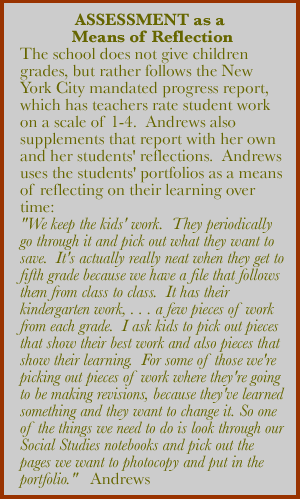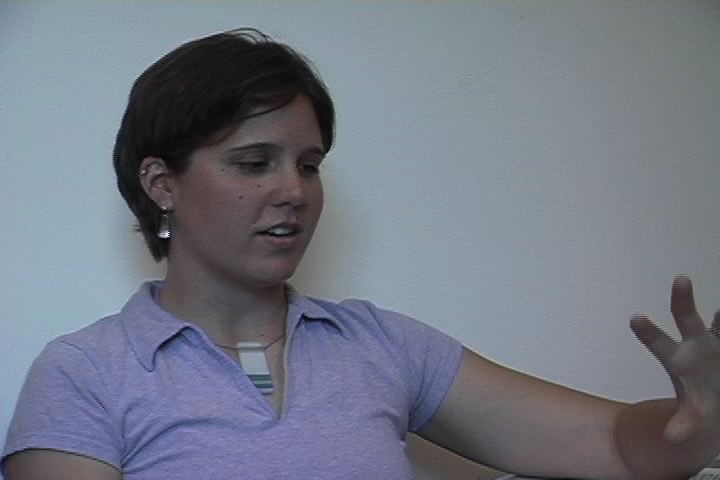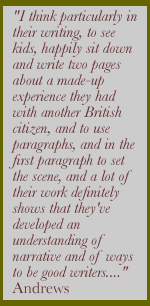
| Andrews uses both informal and formal assessments to gauge her students progress as a part of her own "cycle of inquiry" to determine how her initial plans are working and to shape her instruction for the future. | |||||
Informal assessments involve observing and recording the work of individual students as well as documenting whole class discussions on charts. Keeping track of the questions students ask and the comments they make allows Andrews to understand how individual students are processing their learning as well as to "take the pulse" of the whole class. In addition, meetings and public presentations with other classes, parents, and others also give the students a chance to demonstrate what they are learning. Formal assessments include a variety of assignments that students complete as part of their projects. These assignments both help to keep students "on task" and allow Andrews to see whether students are ready to move on. Every student at the school also keeps a portfolio of work from kindergarten until 5th grade. The students review their work over time, regularly selecting new pieces to include in the portfolio. This activity gives Andrews further opportunities to consider what her students are learning. |
 |
||||
| ASSESSMENT THEMES Download a selection of quotes (pdf) from Andrews' and Falk's conversations about Assessment. |
|||||
Themes detailed in the PDF: Video Reflections:  • Observing Students' Progress: Andrews talks about the progress she saw over the course of this unit (video). • Observing Students' Progress over Two Years: Andrews and Falk talk about the nuanced nature of progress (2:25 min. video). • Ways of Assessing: Andrews talks about different ways of assessing (video). • Observing Students Listen to and Help Each Other: (video). |
 |
||||